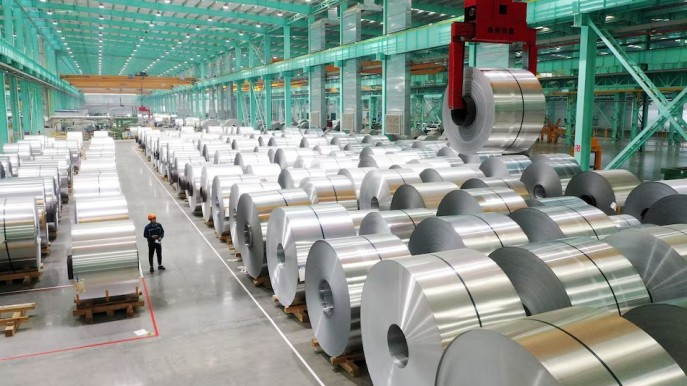China’s producer prices dropped by 3.6% in June 2025, marking the worst fall since July 2023. This sharp decline reflects deepening economic challenges caused by weak local demand and the ongoing trade war with the U.S., led by President Donald Trump.
Although consumer prices showed a slight increase for the first time in five months, it was not enough to signal strong recovery. The country’s real estate crisis and falling exports continue to drag the world’s second-largest economy down, pushing policymakers to consider more economic support.
Producer Prices Hit Hard
The Producer Price Index (PPI) — which measures the prices factories receive for their goods — dropped 3.6% in June from a year earlier. This was worse than May’s 3.3% fall and deeper than the 3.2% decline predicted by analysts. Dong Lijuan, a statistician from China’s National Bureau of Statistics (NBS), said export-based industries are facing price pressure.
“Uncertainty in global trade is affecting the export outlook for companies,” she said.
Read More: Google Pixel 9 Pro XL; Most Premium 5G Phone-5060mAh Battery!
Consumer Prices Barely Rise
The Consumer Price Index (CPI) rose just 0.1% in June compared to the same month last year, reversing a 0.1% fall in May. This slight rise was mainly due to increased prices of industrial consumer goods. However, weak demand means inflation is likely to fall again in the coming months.
“The recent rise in prices may be linked to the consumer goods replacement scheme, but that effect is expected to fade soon,” said Zichun Huang, an economist at Capital Economics.
On a monthly basis, the CPI fell 0.1%, matching economists’ expectations. Core inflation (which removes food and energy prices) went up to 0.7%—the highest in over a year.
Economy Still Weak, More Stimulus Expected
China’s factory output has been shrinking for three months straight. While the pace has slowed, both employment and new export orders remain low.
Economists believe that as exports drop and government support weakens later in the year, demand will continue to fall. This is forcing businesses to cut prices, especially in sectors like automobiles, where intense price competition has led to what officials are calling a “price war.”
To fight sluggish consumer activity, e-commerce giants Alibaba and JD.com have been offering big discounts and fast delivery to attract shoppers.
Markets React Cautiously
Markets responded carefully to the data. Shanghai’s main index rose slightly by 0.3% by midday, while Hong Kong’s Hang Seng index dropped by 0.7%.
Lynn Song, chief economist for China at ING, said that the weak inflation and steady currency may give China’s central bank room to cut interest rates later this year.
“Economic activity has slowed slightly but not enough for emergency action,” said Song. “We expect the next rate cut to happen in the fourth quarter.”
Source: TBS
Share via:


















